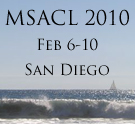| LRN-C PT Program: Being Prepared and Proficient |
| Mon 11:00 AM - Track 3: Proficiency Testing |
LCDR Rachael Schmidt
NCEH/CDC |
|
| LCDR Rachael Schmidt, NCEH/CDC |
|
|
The Laboratory Response Network- Chemical (LRN-C) Proficiency Testing (PT) Program was established in 2001 by the CDC’s National Center of Environmental Health/Division of Laboratory Science to support the establishment of a cadre of public health laboratories capable of producing consistent, high quality emergency response data for Chemical Threat (CT) analytical methods. Participation in the LRN-C PT Program is part of an integrated program including: method training, use of common calibration and quality control materials and a demonstration of initial competence through repeated analysis of common samples until a required level of accuracy and precision has been attained.
Upon inception in 2001 the LRN-C PT Program supported scheduled PT Challenges for five chemical compounds with six participating laboratories. As of 2009, the LRN-C PT Program has grown to support both scheduled and unscheduled PT Challenges for over forty chemical compounds, ranging from Chemical Warfare Agent metabolites to Toxic Industrial Chemicals and naturally occurring toxins. In 2009 alone the LRN-C PT Program processed over 81,000 analytical results from 778 proficiency testing participants. The program's requirements produced a unique design that addresses both the quality of the data generated by the laboratory and the timeliness of response for methods not routinely employed by the participating laboratory. Key topics to be discussed include: a fit for purpose PT program design; the implications of inaccurate but reproducible results; and the investigation of accuracy for zero background and non-zero background methods included in the LRN-C PT Program. |
|
|
| Email: RSchmidt@cdc.gov |



